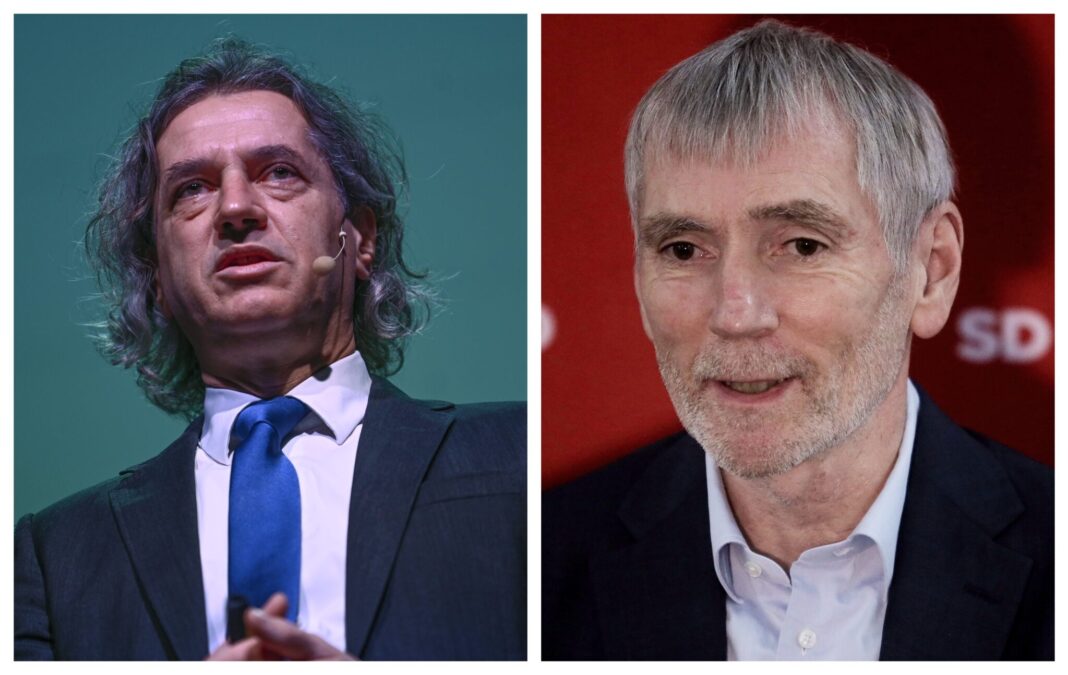By: Sara Rančigaj / Nova24tv
According to the observation of political scientist Dr Miro Haček, things in Slovenia have changed a lot, as the government of Janez Janša is rather centre left in terms of content. “We could also say the Social Democratic government, as it has implemented probably even the most radical social policies, which have given the most help to the most vulnerable part of the population,” he said. In contrast, the left is, despite its commitments, recruiting personalities who could be called ultra-capitalists. “Things have changed in Slovenia. The left supports business elites, which usually come from former systems, which contrasts with developed democratic societies,” said political analyst Matevž Tomšič.
The Slovene left in the SD party also invites millionaire and one of the richest Slovenes, Sandi Češko. While the Social Democrats’ programme should be based on vigilance for the social, they are inviting a person who avoids Slovenian taxes and has a company headquarters in tax-friendly Cyprus. “The day when the Socialists put turbo capitalists at the head of the parties, who are not happy with the money,” said SDS MP Suzana Lep Šimenko.
Usually, the left is the one that draws attention to the rights of workers and the working class, especially the Levica party, which wants to nationalise the economy. On the other hand, the SD appoints a man who is a capitalist to the position of chairman of the expert council for the economy. “He is one of the cruellest employers, whose workers are forced to harass the elderly and the poor over the phone and force them to buy bad products that no one needs. He is a true socially sensitive democrat,” said one Twitter user. Perhaps, however, the SD party is just beginning to realise that it is necessary to create wealth and not just deal with the redistribution of money.
Another transitional millionaire is former CEO of state-owned Gen-I Robert Golob, from whom the public is demanding clarification regarding the overpaid salary and reward. Given that the ‘social’ left is inviting capitalists into its ranks, it could be the exact opposite of the expected ethical economy they pointed out. “Evil tongues could even say that the elections in April will be a clash between the ultra-rich transitional left and the workers’ right,” said communication expert Edvard Kadič.
Transition rich people are running for the left
According to political analyst Matevž Tomšič, the concept of what is left and what is right in Slovenia is quite different from what we are used to in developed democracies. The left usually supports employees, while the right supports the economy more. “Things have changed in Slovenia. The left supports business elites, who usually come from former systems,” Tomšič pointed out.
The Slovenian left thus supports various transitional tycoons and very well-paid managers, such as Golob. “Meanwhile, on the other hand, most entrepreneurs who do not come from previous systems support the right,” Tomšič said, noting that this is not surprising if we look at how these people who support the left came to their positions and it is in some ways logical. “These are political connections of semi-monopolistic structures.”
The Janša government implements social policies for the most vulnerable
If we look at the strictly public-political, i.e., only the content of individual proposed and adopted public policies during the last two years, it is clear that the government of Janez Janša is quite centre-left in terms of content, points out political scientist Dr Miro Haček. “We could also say the Social Democratic government, as it has implemented probably the most radical social policies, which have given the most help to the most vulnerable part of the population, which is confirmed by the Gini index, which measures the egalitarianism of a society,” he said.
The opposite is currently true for the Slovenian left. “Despite the publicly expressed commitments, the Slovene left (except for the Levica) seems to be recruiting many such people and personalities, who could be called ultra-capitalists,” Haček noted, warning that there is a difference between Češko, who worked in the private sector and created most of his wealth outside Slovenia, and Golob, “who ran a state-owned monopoly electricity distribution company more miserably”.
However, last night’s performance of Češko gave hope that the SD party does not believe Golob’s political vision. “Does last night’s appearance by the president of the SD party’s economic council on PopTV mean that the SD does not believe in Robert Golob’s political vision?” political analyst Peter Gregorčič wonders, while pointing out that this appearance raises hopes that the SD party will at least partially move away from the anti-Janšism approach and focus on confronting programme concepts, as Češko said: “Look, it is hard to estimate the profits of a monopoly company. Also, the successes of the director who runs the monopoly. However, I think that in these electricity distribution services, there is no need to make a profit other than investing in the development of the entire economic system, and it is just taking money out of the pockets of taxpayers or the economy.”

